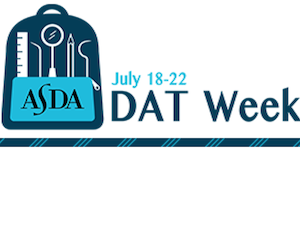Don’t miss Part I of this article, which covered how to prepare before the interview and general interview advice.
COMMON INTERVIEW QUESTIONS
1. Tell me about yourself
You should have prepared for this! Like I said, have your key bullets/road map ready. Try to keep it around 5 minutes too. This question usually comes up on closed file interviews (where they don’t look at your file beforehand). You may want to cover a bit of question 2 (below) if you have time, since it may not get asked separately. I think it’s always best to include things beyond the typical premed experiences. Talk about your cultural background, travels, cool hobbies, non-medically related endeavors, odd jobs… They’ve always loved those things most. Mention the relevant premed stuff too, but don’t forget about what I mentioned in the previous sentence. Stand out as a person, not a premed machine!
application
Advice from 20+ interviews: Part 1
I did 21 interviews. Don’t ask how much it cost because I don’t enjoy thinking about it! Basically, it was roughly the “Top 25” schools if you listen to US News. Since I gained a lot of experience, figured out what works, and had quite a bit of success (with the interviews themselves, not just decisions), I thought I would share what I learned with all of you who want to prepare for interviews.
The Key: Many applicants view interviews the wrong way, in my opinion. To me, it was my time to take control of the conversation and put out exactly the impression that I wanted them to get. You have the spotlight and power to present yourself and your achievements/activities in whatever light you choose. Your confidence and charisma are your greatest assets, and you can use them to make almost anything seem incredible. You shouldn’t be scared – you should be excited, since this is one of the few times you really get to control this process!
Is a Post-Bacc Program Right for Me? Seven Benefits to Consider
It’s important to remember that as you prepare for and apply to medical school, there isn’t one set path you must take. It’s okay if your path takes different twists and turns along the way. Increasingly, applicants are taking gap years, sometimes called bridge years, between graduating from college and applying to medical school in order to gain more medically-related experience, pay down educational debt, or prepare for the MCAT exam.
Humanitarian Opportunities for Medical and Pre-Med Students
Although repeated to the point of being cliche, “to help people” is one of the most popular answers would-be doctors give when asked why they want to go into medicine. The great news is that there are many humanitarian work opportunities for pre-med students, med students and even new doctors to undertake that will not only hone their clinical skills and make them more culturally competent physicians, but also allow them to give medical care to those who might not otherwise receive it.
A Scribe Case Study: Alyssa Kettler
When did you first hear about medical scribes?
I first heard the term ‘medical scribe’ from a friend of my mother, a nurse at Fairview Hospice. She knew that I was looking for meaningful work to undertake before pursuing medical school and suggested I explore scribe opportunities. After extensive online research, I began scribe training with Elite Medical Scribes.
Conquering Organic Chemistry
Organic Chemistry is a hurdle every premed must undertake. For many, it can dissuade you from pursuing your dreams of becoming a physician. This guide is here to prevent that, and instead help you come to terms with the beast commonly referred to as “orgo” or “ochem.”
First and foremost, let’s debunk a couple myths surrounding the subject.
How Test Prep Prepares Me To Be An Effective Physician
Before medical school, the dream of becoming a physician involves helping people and curing disease. During medical school, that dream matures through educational and clinical experiences into a realization that being a physician is something much deeper, a permanent responsibility that only those who are doctors themselves will understand.
Every patient is a trial and error that can lead to life or death. Is the abdominal pain just constipation, a brewing appendicitis, or even worse, colon cancer? Is the patient presentation worthy of simple reassurance, or perhaps blood work, or—to be safe—diagnostic imaging?
Managing Bipolar Disorder in Medical School
Two days before interviewing at the medical school I now attend, I couldn’t get out of bed. At the nadir of my eighth major depressive episode in eight years, I seriously considered whether I could make the trip. Thankfully, I did. And thankfully, six days after that interview I met the psychiatrist who would finally piece together my long and steadily worsening psychiatric history.
I sat in his office, quiet and dulled compared to my spring and summer self, and began recounting my story – the weightiness of my current depression, the semester in college marked by a mere two to four hours of sleep a night (“insomnia” according to my doctor then), and the clockwork nature of my mood changes each year. Within ten minutes, he stopped me mid-sentence and said, almost casually, “You know, you show a lot of signs of bipolar disorder.”
How Nontraditional Students Can Best Position Themselves When Applying to Med School
A friend of mine studied film in college and subsequently found himself working as a cameraman for a documentary television program about the lives of EMTs and ER physicians. He experienced some very tense situations, and from his work decided that he wanted to do more than document how people received medical care—his desire was to participate in the action of helping others as a doctor.
Unfortunately, his film education was the furthest possible undergrad experience he could have from pre-med. He had no applicable science credits, no anatomy or physiology, and the only shadowing he had done of physicians had been with a camera in hand. In short, his path would be an arduous one, and he was soon going to turn 31.
Paving the Road to Medical School
The path to becoming a doctor can feel daunting. For those of us that don’t come from a medical family, it can be challenging to navigate what all you need to do to be a competitive candidate. As a third year psychiatry resident looking back on my pre-med days, I realize just how lost-in-the-woods I felt at times trying to figure out how to get where I wanted to go. Here are half a dozen steps you can take to help pave the way to medical school.
Medical School Interview Do’s and Don’ts
One of the most important phases of the application process is your interview. It’s your chance to demonstrate your communication and interpersonal skills, judgment, maturity, and the qualities that are important for a future physician. It’s also your opportunity to see if the school’s learning environment and culture is a good fit for you. It may seem early to start thinking about interviewing, but some medical schools start as early as July, while others interview throughout the fall and spring until their class is filled.
To help make your interview day a success, here are a few do’s and don’ts to keep in mind as you prepare.
Top 3 Myths about MCAT Scores Busted
As with any high stakes exam, it’s not surprising that there are a number of rumors circulating around the MCAT exam. So we are busting three of the top myths about the MCAT scores and score scale.
Myth #1: The MCAT exam is graded on a curve.
There is no curve associated with the MCAT exam. Instead, the MCAT exam is scaled and equated so that scores have the same meaning, no matter when you test. What does that mean, you ask? There are many different test forms that are produced for a testing year, any of which you could see on your exam day. The forms of the exam are designed to measure the same basic concepts and skills, but each form contains different sets of questions. While care is taken to make sure that each form is about equivalent in difficulty, one form may be slightly more or less difficult than another. We adjust for these differences in the difficulty of test questions when we convert the number of questions you answer correctly to the MCAT score scale. This ensures that scores have the same meaning across test administrations and testing years.
The Most Important Lessons I Learned While Applying to Medical School
Applying to medical school is a humbling experience, even if you have a successful application cycle. No matter how great your pre-medical advisor is or how many articles you have read about the process, you are still bound to have a few missteps that will leave you doubting yourself as a potential MD or DO candidate. It has been nearly a year since I submitted my primary AMCAS application, and as I reflect on the application cycle, several moments stand out to me as essential lessons to learn before you begin your own application process:
My Top 5 DAT Study Tips
This article originally ran on ASDA’s blog, Mouthing Off, on Feb. 3, 2016. ASDA encourages all predentals to join us in celebrating DAT Week 2016 and becoming a member of the association.
Remember studying for the SATs? Or maybe you don’t because you didn’t need to. Now we’re older and smarter, and have made the decision to pursue dentistry as a career. With that though comes its own set of preparation, most notably the Dental Admission Test (DAT). This past summer, I prepped and took the DAT. This exam is certainly no SAT, and anyone who’s set on taking it has to prepare. In my preparations for the DAT, I acquired some helpful strategies and tips that I have compiled into five simple steps to help you succeed on the DAT.
Post-Bacc Program Guide
Post-baccalaureate or “post-bacc” programs, for short, are often discussed among pre-med students. While post-bacc programs can benefit students with many types of backgrounds, they are not for everyone–and knowing this ahead of time is important, as the cost for these programs is anywhere between $20,000-$40,000. This article covers just what post-baccs are, as well as important information on who should consider such a program and what students should ask about before actually signing on the dotted line.
Diversity in Med School: What Minority Applicants Need to Know
While getting accepted into medical school is more difficult than ever in America, there are … Read more
Who Makes a Good Doctor? How Medical Schools Around the World Try to Find the Best Candidates
One of the continuing challenges for medical schools both here in the United States and around the world is to find ways to select the students who will have the best chance of successfully completing their education. The goal of a good medical education, after all, is to train students who go on to become doctors, helping to fill the enormous global demand for well-trained, competent physicians. What might surprise many students, however, is how many different ways medical colleges around the world have come up with to find these ideal candidates–and how widely medical education varies from one country to another.
Five Mistakes to Avoid in Medical School Interviews
We all know medical school interviews are important. But did you know, according to a survey of medical school admissions committees conducted by the American Association of Medical Colleges (AAMC), interviews are the most important factor used to decide which applicants gain acceptance (Dunleavy DM, et al. Medical School Admissions: More than Grades and Test Scores. AIB. 11 (6), 2011)? The most important factor! Fortunately, interview techniques can be learned and, when practiced, improved. This article addresses the five biggest mistakes I have seen pre-meds make regarding interviews during my over 10+ years as a Harvard pre-med tutor and admissions consultant.
4 Ways to Get Accepted With a Low GPA
The fastest way to not get accepted to med school is to think that your GPA doesn’t matter. It does, in fact, matter quite a lot, as it’s the way medical schools can see how you perform academically. It also serves as an easy way for adcom to compare applicants; it is imperfect, given different grading scales and study paths, but it is something that all students have in common.Not thrilled with your GPA? Worried it might get in the way of your med school acceptance? Here are 4 things you can do NOW to increase your chances of acceptance:
Your Pathway to the White Coat: 7 Tips for Writing Your AMCAS® Personal Comments Essay
The AMCAS application to medical school asks for a lot of information about yourself. It … Read more




















